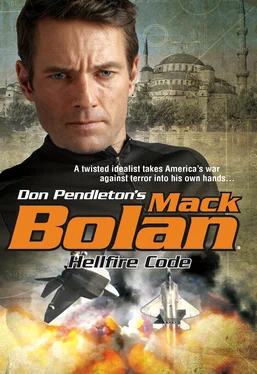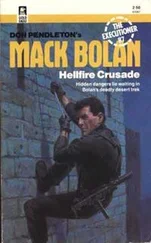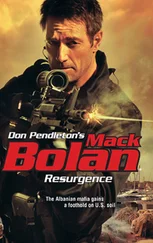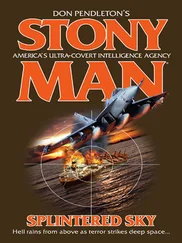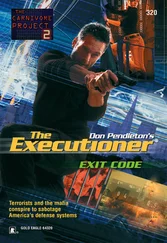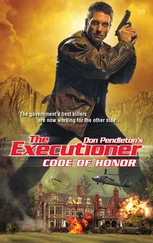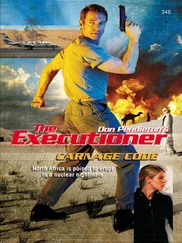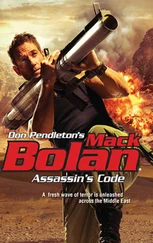Neely took personal satisfaction at the thought of surprise on the man’s face once he realized he’d been duped.
GARRETT DOWNING SAT with Alek Stezhnya and awaited Neely’s arrival. Stezhnya had seemed impatient during the vigil, and Downing couldn’t resist a smile. Despite the fact Stezhnya was a professional soldier, his youth and inexperience in some matters made him a bit impetuous. Not that Downing minded all that much. Downing had a special interest in games like chess, where only his intellect and savvy would see him through. He’d excelled at these things at the War College in Bethesda and later in the NSA.
If there was one thing people couldn’t have said about Downing, though, it was that he was self-serving. He believed in America—cherished the Constitutional concepts of freedom and security—but he thought enough time had gone by that the government should be doing a better job of protecting the country. Sure, the President and his predecessors had talked up a great game about pursuing the terrorists abroad, not giving them a chance to attack the country once more, but Downing didn’t see much accomplishment. If anything, the American taxpayers had shelled out billions of dollars to bring down the dictators and political radicals of the world, and really very little to combat true terrorism.
Well, Downing believed they had reached a point where enough was enough. The people were sick of paying the high price of freedom, and seeing nothing in the results to make it seem as if the investment were paying off. In the next forty-eight hours, Downing planned to change all that.
Downing stood and went to the portable bar of his makeshift office. These weren’t ideal surroundings, but it worked for this kind of meeting.
“Would you like a drink?” Downing asked Stezhnya.
“No, sir,” Stezhnya replied. “You know I don’t drink.”
Downing shrugged, poured a double malt Scotch whiskey over rocks and then turned and smiled at Stezhnya as he studied him over the rim of his glass. “That’s right. Dulls the senses, clouds the mind, and all that rot. Right?”
Stezhnya’s smile looked forced. “Something like that, sir.”
“Do you think I’m crazy?”
“Sir?”
“Don’t be surly, Alek,” Downing said as he took another sip of his drink and returned to his seat. “I asked you if you think I’m crazy.”
Stezhnya shrugged. “I suppose some people might think of you as crazy, sir.”
“I didn’t ask you what other people think, I asked what you think.” Downing didn’t make it a habit to let people off the hook so easily.
“No, sir. I don’t think you’re crazy. I think you’re eccentric.”
“Good,” Downing said. He slapped the thigh of one leg crossed over the other and leaned back in the chair. “I’d hate to think you see yourself as working for some crazy. I’m not a nutcase, you know.”
“I never thought you were, sir,” Stezhnya replied evenly.
Downing considered his glass for a time, and finally said, “I love my country, is all. Perhaps too much. And I’m sorry about the loss of innocent people. Very sorry.”
“As am I,” Stezhnya interjected in a quiet voice.
“Bah, I don’t blame you, Alek,” Downing said. “You were responsible for the mission, sure, and it didn’t go as planned. Still, you got the job done. That’s the important thing. What I am trying to say, and not very well, is I’d trade the lives of a few countrymen over an entire country. Including my own.”
Stezhnya nodded and then looked at his watch. “Neely’s late.”
“He’ll be here,” Downing said.
A rap at the door caused the Russian-American commando to jump to his feet and reach beneath his jacket. Downing raised a hand to signal he should relax and then gestured toward the door. Stezhnya padded across the room and opened the door a crack, one hand inside his jacket. He opened it a little more to admit a somewhat haggard-looking Roger Neely.
“Ah, Mr. Neely,” Downing greeted. He rose from his chair and extended a hand. Neely looked behind him and noted Stezhnya had closed and locked the door before he shook Downing’s hand. “We were just talking about you. Please, have a seat.”
Neely took the seat Stezhnya had occupied. The Russian chose to stand over his shoulder, a move Downing noticed made Neely nervous. Well, that was fine because he needed Neely’s cooperation. Downing hated having to put Neely in a situation like this—forcing him to betray trusts and leak sensitive information—but it was for a much greater cause. Downing would not, of course, have brought any real harm to Neely’s family but he couldn’t let Neely onto that secret. Downing knew Neely would eventually attempt to escape with his wife and daughter, but he hoped it wouldn’t come to that before he’d finished with the man.
“So, we finally meet face-to-face,” Downing said with a deep sigh. “What a moment, yes?”
“I’m thrilled to be here for it,” Neely said drolly. He cast another suspicious glance over his shoulder.
“You’ve been a great service to us, Mr. Neely,” Downing said. “I do hope we can count on your continued cooperation.”
“Do I have a choice?”
“Oh, come now. Your NSA file suggests you’re quite the patriot. I’m positive you would want to further show your support if you better understood our mission and goals.”
“What I understand is thirteen dead people who should still be alive,” Neely said. “Somehow, I don’t think much else matters when you go around wasting kids and grandmothers.”
Downing shook his head with sadness. “We were just speaking of this. It was not my desire that innocent people suffer. It was an unfortunate accident. But in war we must accept the fact that innocent lives can and often are lost, that casualties are a consequence to both sides, and we must come to terms with that fact.”
Neely’s smile lacked warmth. “We’re not at war, Downing.”
“Oh, but we are,” Downing replied. He rose and went to the small window overlooking the street below the three-story building. “In fact, we’ve been at war for some time now. We declared that war when the terrorists chose to attack us on our own soil. Even before that, I’m afraid.”
He turned to look at Neely, folded his arms. “You see, we’d been battling terrorism for years. You know the history of our secret societies. Of course, we’d done a good part of it behind the backs of our fellow citizens, but that was only so we could protect them from the horrors of our war. And yet after all this time, how far have we really come? I ask you, Mr. Neely, how much closer are we to victory? So we’ve overthrown a dictator here and there, kept one or two network cell leaders on the run. But what real benefit has this reaped for us? Nothing.
“Our people continue to live in fear, and we still issue regular high-level alerts for terrorist threats. We scan air and sea alike for any danger, search our people at airports and train stations and bus depots without evidence of wrongdoing. We detain citizens at border checkpoints, thereby restricting freedom of movement. And what I find most detestable is that we permit our government, under the guise of that ridiculous and unconstitutional Patriot Act, to impose any sort of order it sees. Washington bureaucrats continue to operate unchallenged and unchecked, Mr. Neely, and good Americans continue to die. So while we do what we think needs to be done to stop terrorism, groups like the New Corsican Front are smuggling in an army of devils right under our very noses. And what do we do about it? Again nothing!”
“And you plan to change that?”
“We’ve already changed it,” Stezhnya barked.
Downing nodded with a smug and satisfactory expression. “Alek is correct. The New Corsican Front lost thirteen of their men in our operation in Atlanta. That’s thirteen who won’t threaten our country with suicide bombs. Thirteen who won’t shoot or blow up any American children tonight. Thirteen who won’t hijack any planes or kill any service people in defense of some outdated religious ideology.”
Читать дальше
